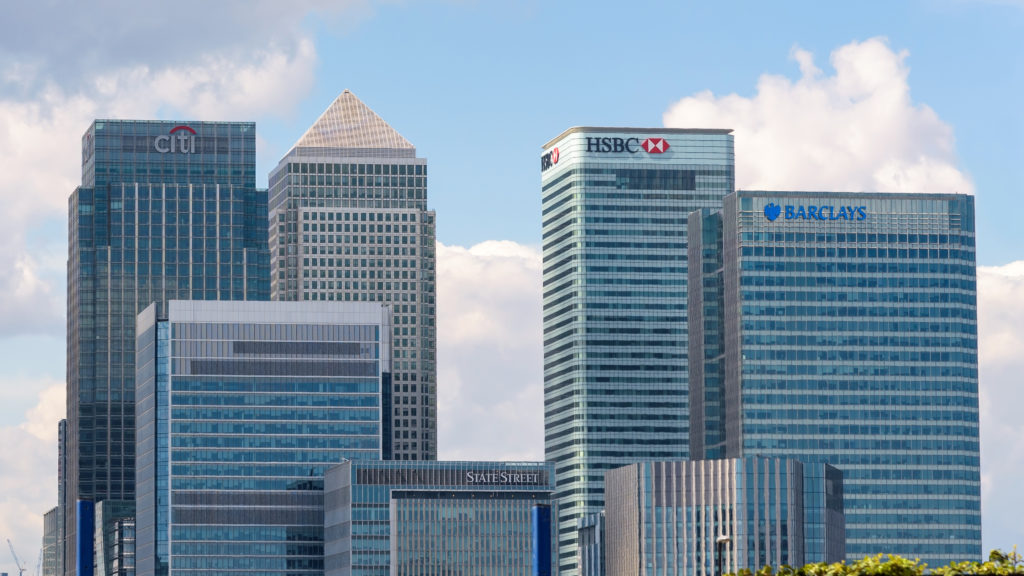In a world driven by the digitised flurry of trade winds, the financial landscape of the United Kingdom presents a quizzical spectacle of its own. As its neighbours across the pond and its continental compatriots lunge forth in the realm of investments, British banks and investors have strayed from the path, creating an economic disconnect with prevailing US and EMEA trends.

Imagine a grand orchestra performing a symphony, with each country, each bank, and each investor striking their notes harmoniously. And yet, in this financial orchestra, the UK stands apart, its notes echoing in a dissonant solitude, a melody steeped in its rhythm.
While American venture capitalists cast their nets far and wide, eager to latch onto the next unicorn, or European investors bet their chips on innovative start-ups, the British investing scene seems to have hit a silent pause. It’s as though a cloud of reticence has swept over the land, cloaking the financial sector with an enigmatic caution.
Gone are the days of swashbuckling British investors, emboldened by the promise of silicon valleys and tech startups, setting sail for the shores of foreign investments. The current, it seems, has shifted. UK banks and investors have chosen, rather unusually, to keep their reserves locked up in the old stony vaults.
The irony is particularly striking given the UK’s rich history of pioneering innovation. From the steam engine to the World Wide Web, this island nation has often led the charge in transforming human society with groundbreaking technology. Yet, in the case of AI – a force poised to redefine every aspect of our lives – the UK’s financial sector seems strangely reticent.
What could be the cause of this selective amnesia, this hesitance to invest in the shape of the future? Is it the sobering spectre of Brexit still casting long shadows over financial decisions? Or perhaps it’s the legacy of the 2008 crisis, whose lessons on the perils of unbridled speculation still echo in the hushed corridors of British banks.
One might compare the current situation to a receding tide, pulling away from the bustling beach of innovation. And the most poignant casualty of this ebb? Artificial Intelligence.
AI, the golden child of the tech world, revered and courted by investors worldwide, is met with an unexpected cold shoulder in the UK. It’s as if the era-defining phenomenon, which is part and parcel of the modern financial zeitgeist, is somehow adrift in the British Isles.
UK’s reluctance to engage with AI is akin to a refusal to dance with the belle of the ball, even as every other suitor in the room vies for a turn. From autonomous vehicles to healthcare advancements, AI continues to revolutionise every nook and cranny of our lives. Yet, in the grand British financial manor, the lights seem dimmed for this particular dance.
The reasons for this estrangement are manifold and complex. Some point towards a traditionalist financial culture that eschews the volatility of tech investments. Others hint at a scepticism borne from the fear of the unknown, given AI’s nascent nature and its labyrinthine ethical implications.
Regardless of the reasons, this disconnect poses a paradox for a country known for its innovation and entrepreneurship. It’s like a giant awoken from a slumber, only to find the world has moved on while it slept. The symphony continues to play, but the UK’s melody, once a resonant part of the harmony, now plays a solitary tune.
For a return to the harmonious concert of global investment trends, it’s crucial that the British financial sector recalibrates its stance on AI. In a world increasingly fuelled by artificial intelligence and its limitless potential, any further hesitation could mean missing out on a dance that might just redefine the future of finance, industry, and society at large.
The time has come for the UK to reconnect with its heritage of bold decision-making, to seize the initiative and rejoin the global dance of investment. To recognise that AI is not a mere passing trend, but a transformative force that will shape the coming decades. Only then can the UK reposition itself as a leader in the global financial arena, dictating the beat rather than merely dancing to it.





